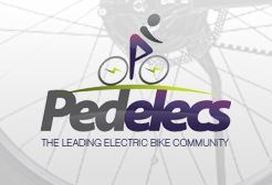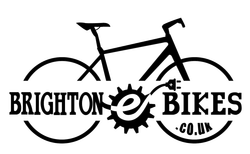 There has been quite some misinterpretation and confusion of the laws relating to E-bikes with 'twist-and-go throttles' in the UK. Thankfully, The Department for Transport (DfT) have recently clarified the matter of when throttles are accepted. Pedelecs, the leading electric bike community, recently published an article that provides clear explanations, on the most part devoid of technical speak and jargon. The following is an extract from a recent Pedelecs' article. The Department for Transport has today confirmed to Pedelecs that an ordinary cycle, already ridden on public roads as such and subsequently converted to a ‘twist and go’ electric bike, will not require type approval. The DfT further clarified that type approval ‘only applies to new vehicles, not converted ones’. The latest guidance on conversions follows on from news that electric bikes manufactured as a ‘twist and go’ from January 2016 will require type approval. Their response reiterates that ‘twist and go’ type approval requirements are directed at the manufacturers, meaning that ‘riders making conversions are not committing an offence’ (with regard to type approval requirements). It is also our understanding that, since not all cyclists are technically proficient in fitting conversion kits to a bike, that conversion can also be carried out by a business, so long as the bike in question has been ridden on public roads before conversion (i.e. the bike is not considered ‘new’). The full response from the DfT reads: “In response to your email about converting a normal pedal cycle which has first been used on the public road as a pedal cycle, I am pleased to report that type approval does not apply – it only applies to new vehicles, not converted ones. Therefore if you convert a pedal cycle which has already been ridden on the road to “twist and go” operation, it does not become subject to type approval. As previously noted, the regulations will be directed at the manufacturers and so riders making conversions are not committing an offence. Manufacturers are permitted to sell kits of this nature but would need to ensure they are in line with regulations if sold as EAPC kits (EAPC power and speed limits).” Currently, new electric bikes fulfilling the definition of an EAPC (electrically assisted pedal cycle, limited to 15.5mph motor assistance/250w) are exempt from requiring the manufacturer to type approve before retailing. However, ‘twist and gos’, electric bikes manufactured with a throttle that can independently propel the bike forward without the rider needing to pedal, fell through the legislative cracks of type approval exemptions since motor assistance isn’t cut off when the rider ceases pedaling: Article 2(h) of the EU Regulation No 168/2013 excludes from its scope the type approval of “pedal cycles with pedal assistance which are equipped with an auxiliary electric motor having a maximum continuous rated power of less than or equal to 250 W, where the output of themotor is cut off when the cyclist stops pedalling and is otherwise progressively reduced and finally cut off before the vehicle speed reaches 25 km/h.” Twist and gos are particularly popular with those who may have limited physical abilities but want to stay active and mobile. (Thank you Pedelecs)
1 Comment
Caiden
21/4/2019 17:38:24
Hi, very nice website, cheers!
Reply
Leave a Reply. |
|
Brighton E-bikes
- Home
- About
-
Store
- Bafang BBS motor and battery kits >
-
Lekkie® Bling Rings
>
- Bling Ring BBS01/02(B) - 36T
- Bling Ring BBS01/02(B) - 40T
- Bling Ring BBS01/02(B) - 42T
- Bling Ring BBS01/02(B) - 46T
- Bling Ring BBS01/02(B) - 52T
- Lekkie BBS01/02(B) spacer
- Bling Ring BBSHD - 36T
- Bling Ring BBSHD 40T Bundle
- Bling Ring BBSHD 40T Sprocket only
- Bling Ring BBSHD - 42T
- Bling Ring BBSHD - 46T
- Bling Ring BBSHD - 52 tooth
- Lekkie BBSHD spacer
- Bling Ring Pro 40T HD bundle
- Bling Ring Pro 42T HD
- Lekkie Buzz Bars crank arms
- Final drive cover BBS01/02
- Final drive cover BBSHD
- Lekkie BB86/92 Adapter
- Lekkie PF30 Adapter
- Lekkie 5mm Motorspacer
- Lekkie Onenut
- Lekkie Four-42 Socket
- Lekkie Sixteen-44 Socket
- Complete electric bikes >
- Bafang BBS01/02(B)/HD parts and accessories
- Contact
- Gallery
- Testimonials
- Blog
- Useful links and resources
- Terms and Conditions
LocationHove
Brighton East Sussex United Kingdom Test rides and demonstrations by prior arrangement.
Contact the workshop direct on 01273 930700 or email [email protected] |
|


